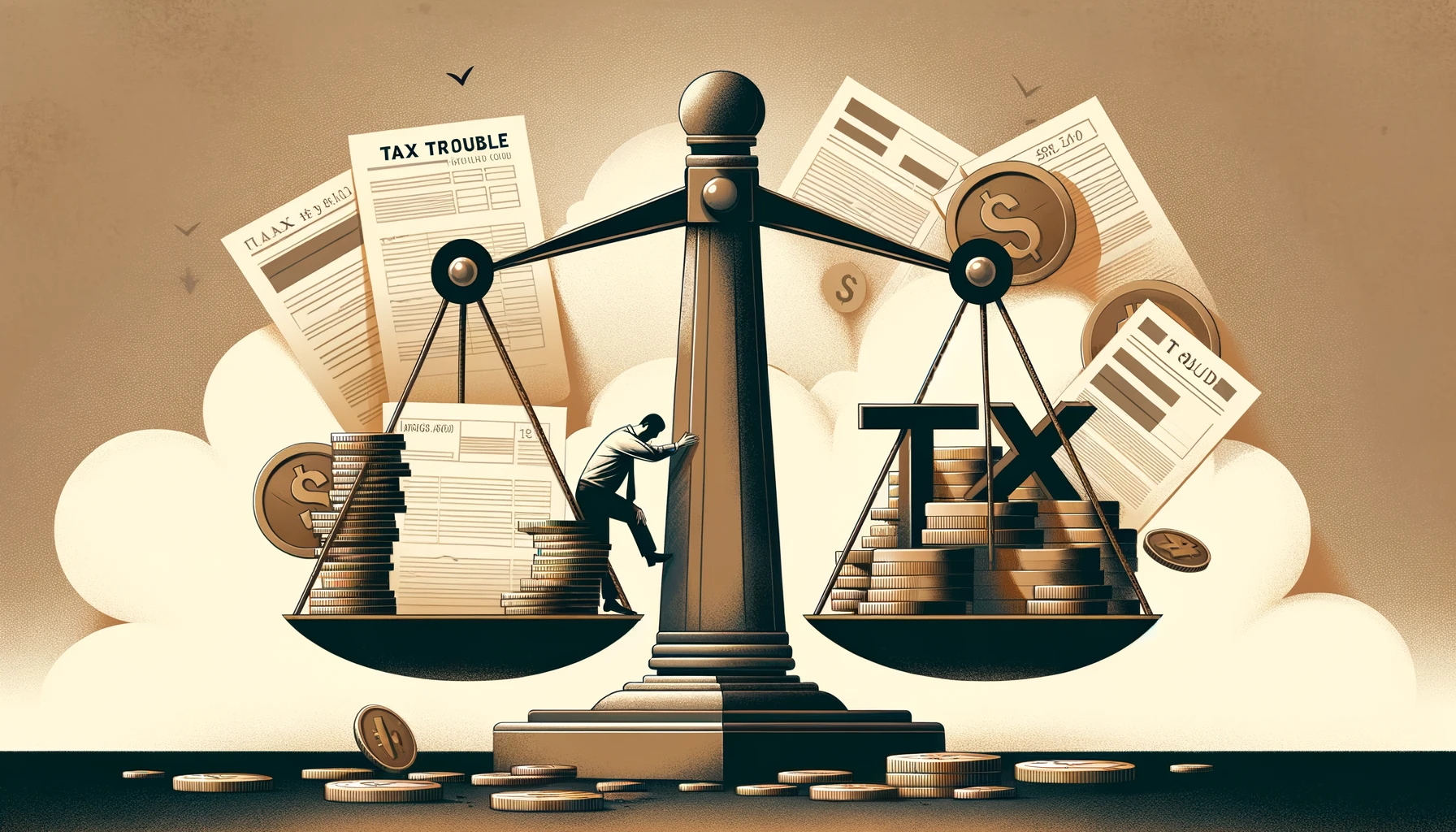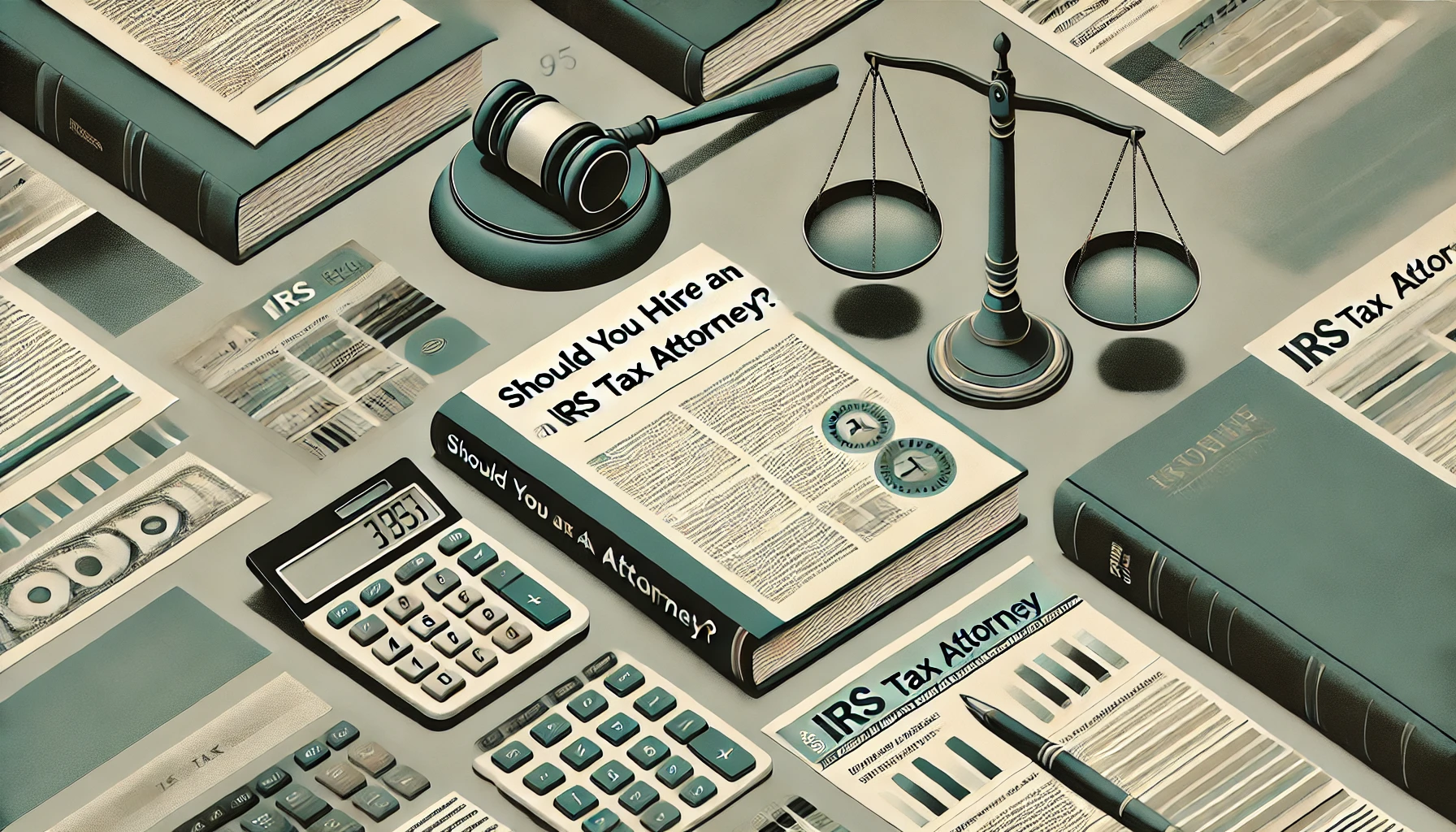How Do I Know If My Business Is In Tax Trouble?
So, how do you know if your business is in tax trouble? Watch out for these common warning signs that your business may be heading for tax dilemmas or audit triggers:
You have a lot on your plate if you own or operate a small business. Managing daily operations, business finances, employees, and growth plans takes up most of your time. With everything going on, your business’s taxes may end up on the back burner. However, neglecting your tax obligations can land your business in hot water with the IRS.
You Have Unfiled Tax Returns
Failing to file your business tax returns is one of the surest signs you’re inviting IRS trouble. If you didn’t file returns for multiple years, you could accumulate substantial failure-to-file penalties, running upwards of 5% per month of unpaid taxes. The IRS may also put you on their audit radar for non-compliance.
Don’t panic if you have unfiled returns. Take actions to get compliant right away by:
- Filing any back returns that are due
- Paying as much of the unpaid balance as possible
- Setting up an IRS payment plan if needed
Getting back on track now can help you avoid further IRS enforcement like bank levies.
You Have Large, Consistent Tax Debts
Do you owe back taxes year after year? Do they keep accumulating with penalties and interest? Consistently carrying unpaid tax debts is a recipe for tax disasters.
If you already have a sizable IRS tax debt you’ve been unable to pay for multiple years, your highest priority should be resolving it. The IRS has over 150 enforcement weapons to collect unpaid taxes, like garnishing wages and seizing assets. Act now to avoid aggressive collections.
Strategies like applying for Currently Not Collectible status or submitting an Offer in Compromise can help, but they require very specific eligibility circumstances. Speak to a tax professional to understand all your resolution options.
You’re Behind on Payroll Taxes
Payroll tax obligations like withheld income tax and Social Security/Medicare taxes are no joke with the IRS. Because payroll taxes are considered “trust fund” money that belongs to the government, the IRS zealously pursues businesses that use those funds for other purposes.
Suppose you’ve fallen behind on depositing payroll taxes each pay period or have outstanding balances due. In that case, you’re at high risk for collections, like having your bank accounts frozen or business assets seized. Get help from a tax pro immediately to avoid dire consequences and negotiate the lowest payment terms possible.
You Have Large, Questionable Tax Deductions
When a business reports large losses year after year with little income yet takes generous deductions, it can trigger an IRS audit. Be realistic about the tax deductions you claim for your business. Make sure they follow IRS rules and that you have documentation to support deductions in case of an audit.
Watch out especially for deductions in known IRS high audit risk categories like:
- Business travel and entertainment
- Vehicle expenses
- Office in home
Avoid flagging your tax return for an audit by only claiming legitimate, supportable write-offs. Consult a tax preparer for advice on deduction limits and documentation rules specific to your business.
You Fail to Report Cash Transactions
These days, with rampant credit card use, you may think few businesses deal with cash payments. However, cash is still used in many industries, from restaurants to nail salons to tradespeople. If your business routinely receives cash payments, you must report that income. But some businesses pocket the cash and fail to tell the IRS, thinking unreported income will go unnoticed.
Be warned: Failing to report cash earnings is illegal tax evasion and subject to steep criminal penalties if caught. With methods like bank deposit analysis, the IRS can uncover unreported cash skimming even years later and hit you with back taxes, fines, fees, and possibly tax fraud charges. Don’t risk it — disclose all cash income properly on your tax returns.
You Have No Business Records
Do you scribble income and expenses on sticky notes scattered on an overstuffed desk? Can you not find basic records like prior year tax returns or bank statements? Is your idea of accounting software a shoebox full of receipts? Disorganized, inaccurate, or nonexistent business records invite IRS trouble.
Messy books let simple data entry mistakes happen, turning into incorrect tax returns and IRS notices. And if you’re audited, good luck convincing an IRS examiner your expenses are legitimate without organized backup like receipts and invoices.
Make maintaining orderly accounting records a top priority in your business. Consider hiring a bookkeeper experienced in your industry and using cloud accounting software.
You Constantly File Extensions
Many businesses must file an extension for some tax years when operating realities collide with tax deadlines. But constantly putting your tax return on extension year after year hints at disorganization or avoidance. This pattern can increase audit risk, so use extensions judiciously rather than as a habit.
Failing to file by the extended October 15 deadline results in a penalty 5x higher than filing late without an extension. So, be realistic about your ability to file by the extended date and seek professional help to ensure you don’t miss it.
You Operate in Cash Intensive Industries
Some businesses and industries simply deal with more significant amounts of cash by nature and face extra IRS scrutiny, including:
- Restaurants, bars, liquor stores
- Convenience stores
- Salons, spas
- Trades like construction, plumbing, roofing
- Auto/equipment repair shops
- Taxi/rideshare services
- Parking lots
- Coin laundromats
- Farming
These cash-intensive trades tend to have higher audit rates and more frequent IRS visits to check records against bank deposits, so they require extra diligence with tax compliance. Use reliable POS systems, deposit cash daily, and maintain meticulous category records to avoid issues.
You Have International Activity
Does your business import or export goods internationally? Do you travel overseas for business or have international partners? Transactions with other countries are prone to complications, paperwork delays, and misreported income that raise IRS eyebrows.
Common red flags include failing to file special information returns for foreign interests or international business partnerships. Underreported income from import/export transactions also often triggers audits. If you have any cross-border business, consult a tax pro on proper reporting to avoid trouble.
You Claim Too Many Credits and Refunds
The IRS cracks down on improper refundable tax credits, resulting in big claimed refunds, like fuel and research credits. Random large refunds prompt the IRS to examine your whole return more closely for questionable deductions, credits, or errors in your favor.
Don’t claim credits you don’t qualify for or fail to follow credit rules to the letter. Seek expert guidance on the types of tax credits available to your business so your refund claims are appropriate and supported.
When to Call In a Tax Attorney
If you see multiple warning signs your business’s taxes are amiss, now is the time to take action. Continuing non-compliance while hoping problems will fix themselves almost guarantees IRS headaches.
Carefully examine your business’s tax practices against this list of red flags. If issues are minor, taking immediate corrective steps may suffice, perhaps with the help of a tax preparer or CPA. But once significant problems surface, like payroll tax arrears or signs of tax fraud, employing a tax attorney’s guidance is wise.
Tax attorneys have special expertise in navigating complex IRS rules and aggressive enforcement tactics. They help clients restore compliance, negotiate reduced settlements, and defend them before the IRS if needed, all while shielding their legal rights.
Attorney representation becomes critical if your business faces criminal tax investigations or charges. Only a qualified tax defense lawyer can help avoid criminal convictions or possibly jail time for willful tax crimes.
If your business tax compliance needs a major overhaul, don’t delay engaging a tax attorney. The sooner they can assess your situation from a legal perspective and start tackling problems strategically, the better your chances of resolving IRS issues and avoiding worst-case outcomes.
You can initiate a free consultation with an attorney at Tax Help Attorneys to discuss your business’s tax concerns confidentially. Schedule your appointment online. We help businesses nationwide get IRS-compliant and avoid costly penalties and aggressive collections.
Take Control of Your Business Taxes
Running a successful venture means handling its taxes properly, even when you have higher priorities competing for your time as an entrepreneur. By watching for telltale warning signs, you can catch potential tax troubles early and correct issues before they escalate. If you already face pressing tax problems, specialized legal help can prove invaluable before the IRS threatens assets or moves to shut down your company.
Don’t let uncertainty or anxiety over taxes continue plaguing your startup or small business. Seek assistance immediately this tax season, whether from a tax pro or an attorney. That’s the surest way to resolve problems decisively and help secure your business’s future.



